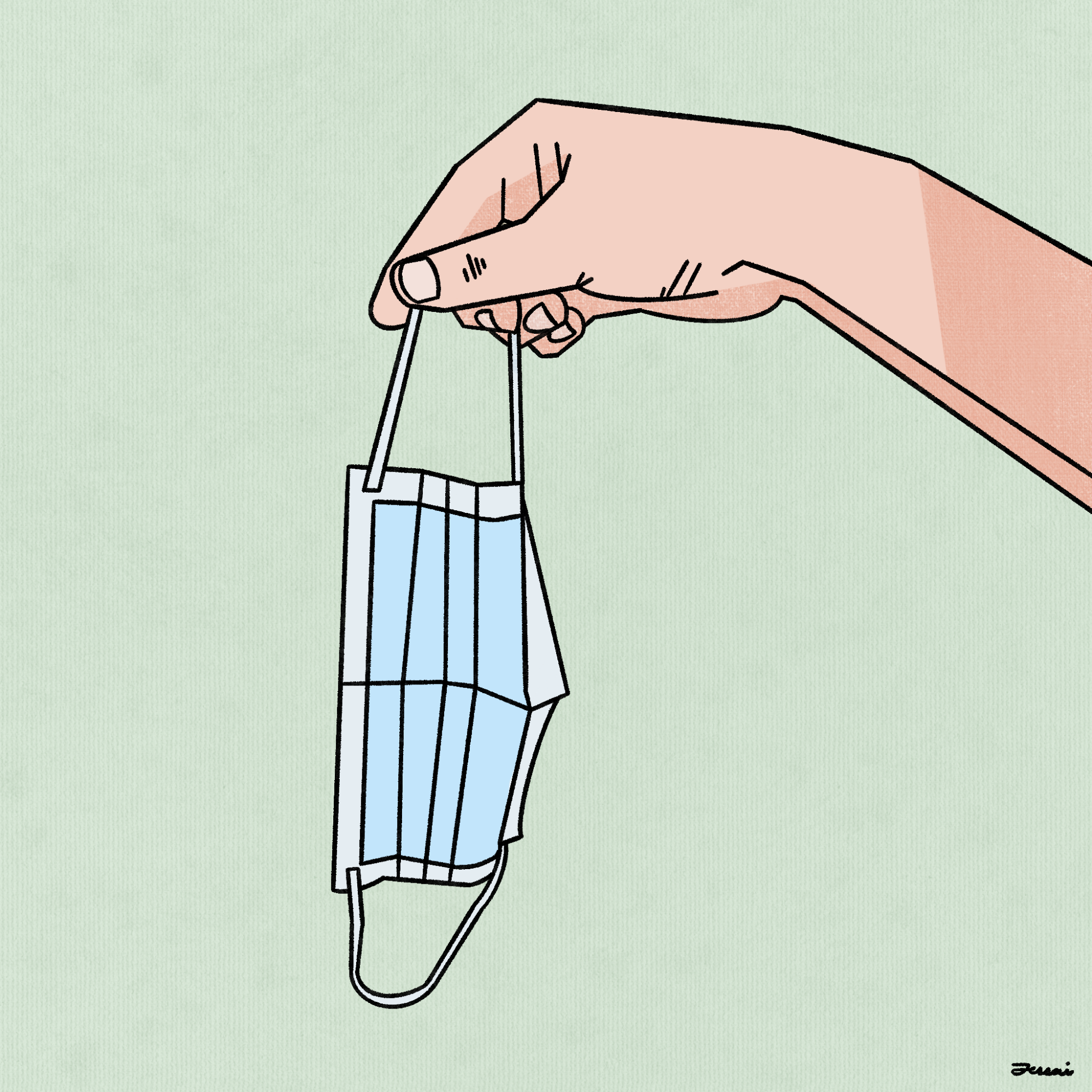The fading of a pandemic: Yale’s COVID-19 policy, two-and-a-half years later
Following two and a half years of COVID-19 policy development, the University’s relaxed regulations stand in stark contrast to those set in place at the beginning of the pandemic, which were much more strict.

Jessai Flores, Illustrations Editor
Updated COVID-19 regulations on Friday were the latest in a string of administrative changes for the fall 2022 semester.
Beginning last Friday, any students who tested positive for COVID-19 would be notified by email rather than by phone call. Students will also no longer have to take a proctored test in order to prove they are COVID-19 negative.
The latest policies contrast those which have been put into place a year ago, as well as the isolation policies which were changed early in the semester, allowing students to isolate in place in their dorm rooms.
Chief Quality Officer at Yale Health Madeline Wilson wrote to the News that faculty, staff and graduate students have been notified electronically when testing positive “for many months,” and this change was instituted based on positive experience with this approach.
Wilson also wrote that this change removes the need for proctored antigen testing, which required a specific test kit and the Navica app. According to Wilson, while this approach was effective, it was associated with “a number of ongoing technical challenges.”
“We felt that students were ready to manage more of the process themselves,” Wilson wrote to the News.
In addition to Friday’s announcement, Wilson also sent a community-wide message that encourages testing before and after the upcoming November Recess.
But because students are not required to test regularly like they were in the 2021-2022 school year and, instead, are expected to self-report positive cases, Wilson “predicts” there are likely students who do not report positive cases.
“This is so unfortunate, as the systems we’ve put in place for isolation and identification of close contacts protect the whole community — including roommates, friends, classmates, teammates and others who may be in contact with an infected student,” Wilson wrote, “That said, most students and staff are community-minded and report positive home tests to us.”
University President Peter Salovey told the News that high levels of vaccination in the Yale community and treatment advances have allowed the University to reduce several restrictions.
On Oct. 27, the University mandated students to receive an updated, bivalent COVID-19 vaccine booster by the start of the spring 2023 semester — but faculty and staff were not subject to the same requirements. A week later, the University set up mobile booster vans on Cross Campus to vaccinate students on Nov. 3 and Nov. 10.
Wilson said the pop-up booster vans generated “great enthusiasm,” with just under 550 bivalent boosters and 240 flu shots being administered.
Dean of Yale College Pericles Lewis said that the booster requirements, as well as the fact that many students have previously tested positive, is contributing to fewer positive COVID cases than in prior semesters.
In addition, Lewis told the News that the University continues to monitor COVID-19 cases and adjust policy based on those numbers. He said the contact tracing team is still working to contain outbreaks but added that most cases recently are “one off” rather than part of clusters.
While Lewis said there was a small uptick in cases a few weeks ago, he noted that it did not turn out to be a “bigger wave,” which suggests that existing policies are working “reasonably well.”
Salovey told the News that the University is focused on providing guidance, rather than requirements, for future COVID-19 policy changes.
“This is not a ‘return to normal’ but rather a way of engaging as safely as possible in campus activities while COVID is still among us,” Salovey wrote in an email to the News.
Moving into the winter, both Lewis and Wilson predict there may be an uptick in cases based on more indoor activity and relaxed mask use.
Wilson wrote that the requirement of the bivalent booster is part of a “preventative approach,” and if cases rise substantially, other public health measures including indoor masking would be “strongly encouraged, if not required.”
Lewis said he thinks the first step would be to mandate masking again if there is an uptick in cases. However, he said that the University’s testing system is firmly in place and COVID-19 is now “comparable to the flu,” so he does not expect the University to require testing again.
Salovey told the News that any future modifications in University policy or guidance will be determined by public health conditions in the local community and around the country, as well as the guidance of public health and medical experts on campus.
“As always, Yale will be guided by data and by the expertise of the faculty and staff experts on campus,” Salovey told the News.
The CDC lists the community level of transmission for New Haven County at “medium” as of Nov. 16.







